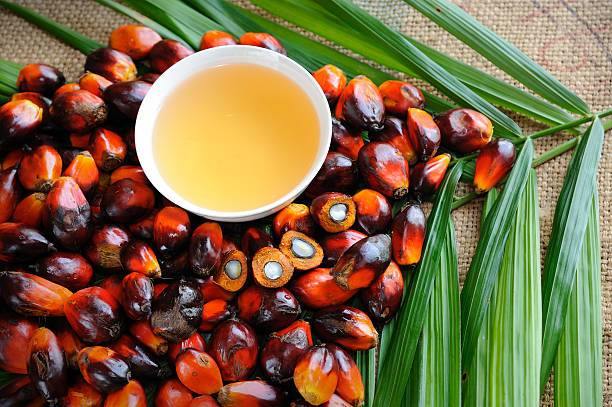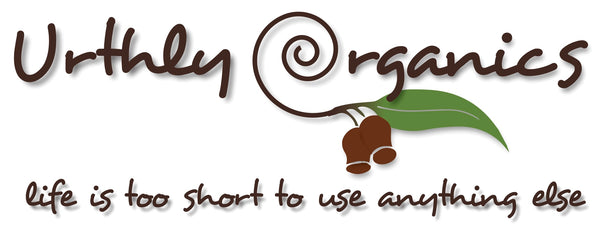
Palm-Oil: The Choice is in Our Hands
Share
This is an ongoing series we hope to deliver at Urthly Organics as part of our ‘Products with Purpose’ blog.
With the rise in consumer awareness of their social and environmental impact, companies must look to evolving their products to be as sustainable as possible. However, many businesses have instead begun to greenwash their products and customers into believing they’re a ‘green’ business.
‘Greenwashing’ [1] refers to the insincere and superficial display of concern towards environmental issues by organisations such as labelling items that take years to break down as ‘biodegradable’, sustainable palm oil and its derivatives, third party animal testing, and not paying workers a fair wage for manufacturing ‘eco-friendly’ products[2]. The use of branding can mislead the public into buying unethically.
Which makes one question, how do we know what we are buying is aligned to our values? The answer is not straight forward. Ideally, everyone would be a ‘conscious consumer’, whereby individuals base their purchasing decisions are based on the transparency and shared values of a company. However, for some people and situations, this is not always possible in every situation. This is where companies need to assist in providing the opportunity to buy ethically.
With our business aiming to provide some alternative to environmentally unsustainable products (namely skincare and cleaning), we believe that it’s important for us as people to hold a critical lens to what we are being sold. An area we are extremely passionate about is ingredients. This month, we are focussing on why we are certified palm oil and derivative-free.

Palm Oil
The palm plant is native to West Africa[3]. Thriving in humid and tropical environments, the plant was imported to parts of South-East Asia in the 19th century whereby it has been grown rapidly since. Palm fruit develops in bunches, with each individual being similar in size to a plum. When harvested, the flesh of the fruit is used to obtain palm oil, with Palm Kernal Oil extracted from the inner seed. As this is a high yielding oil the cost to manufacture this is minimal hence the use of palm oil in foods is often used to keep the price at a low.
Palm oil is present in approximately 50% of goods that consumers use daily. Labelled in over 200 different ways[4], the oil and product are present in food, cosmetics, skincare, cleaning, and much more.
Impact on the Environment
While this tree’s fruit is extremely versatile, the devastation to our planet significantly outweighs all benefit. Palm oil companies illegally destroy thousands of hectares worth of rainforest in Malaysia and Indonesia. To clear the land, the rainforest is cut down and burnt. In the process of this destruction, carbon is released into the atmosphere, smoke inhalation can occur, displacement of people, and the decimation of wildlife (such as the Orangutan)[5]. Since 2000, palm oil companies accounted for about 2.4 million hectares (6 million acres) of rainforest loss (35% of forest loss in the Indonesian part of Borneo, and 46% on the Malaysian side)[6].
The detriment that palm oil creates extends into other crimes. Trades such as poaching are also assisted in the process, with young animals separated from the wild and their parents (who are often killed)[7]. These animals are then sold as pets, entertainment, or for bushmeat.

What you can do?
For the environmental and sustainable footprint of the world, it is saddening to see that palm oil remains so popular. Without doing anything, the problem is expected to double by 2050.[8] So many businesses are putting profit first. This means it is up to us as individuals to take action to preserve the rainforest. Some helpful approaches we take as individuals and as Urthly Organics include:
- Checking the ingredients: After a while, you begin to learn some of the names that palm oil and derivatives are labelled as. This can prove to be difficult, there are shopping apps designed to assist in determining whether a product is palm-free[9][10]. Making the informed decision to avoid a palm-derived item hurts the business at the hip pocket, and allows for you to be a conscious consumer. As a buyer, we can also work towards advocating for transparent labelling. One simple change that makes a difference is the labelling of ‘vegetable oil’[11]. Vegetable oil can be a variety of oils, including palm oil. By having a clear label, businesses aren’t hiding behind a guise of being an ethical option.
- Asking businesses questions regarding their product: Decision-makers in the company need to be aware of what they are putting into their product. However, misleading branding and ambiguous supply chains can disguise the reality. For example, a food labelled as ‘vegan’ may contain palm oil, defeating the purpose of not having animal products because of the deaths of animals from the planting of the trees. Other claims that occur include ‘palm-oil free’ and ‘sustainable palm oil’. While appearing like the perfect alternative, we as consumers need to ask for proof. Is it certified? Do you have proof of certification? Do you know your supply chains? These are all questions that can lead to products emerging as unsustainable and greenwashing.
- Celebrate palm-free wins: As people, we inherently make mistakes. But the time is now to fix them. This goes for palm-derived products. Every day, businesses decide to phase out palm. By supporting and showing appreciation towards this action, we lead more businesses into a more sustainable future[12].
Our products
Every single product we create is certified palm oil and derivative-free by Orangutan Alliance[13] and endorsed by Palm Oil Investigations[14]. This has been the mission we have maintained for over 6 years now, with our close work with organisations attempting to reduce palm-oil reliance. At Urthly Organics, we also currently sponsor two orangutans through the Centre of Orangutan Protection[15].
Together, our impacts and commitments add up. With the welfare of our precious natural environment relying on our choices, it’s time if you haven’t already to say no to palm oil. And put the planet over profit.

References:
[1] Kenton, W., via Investopedia (2020), ‘Greenwashing’: https://www.investopedia.com/terms/g/greenwashing.asp
[2] Green & Thistle (2020), ‘What is Greenwashing? Examples [2020]’: https://greenandthistle.com/what-is-greenwashing/
[3] Palm Oil Investigations, ‘About Palm Oil’: https://www.palmoilinvestigations.org/about-palm-oil.html
[4] Orangutan Alliance (2020), ‘Alternative names for Palm Oil’: https://orangutanalliance.org/whats-the-issue/alternative-names-for-palm-oil/
[5] WWF (2018), ‘Palm Oil’: https://www.wwf.org.au/what-we-do/food/palm-oil/?t=AD1920O01&f=41140-227&gclid=CjwKCAjwyo36BRAXEiwA24CwGSY9JEynJjgqqIOW9TMGJPt-gd3FX2-ezdNuzBX13PDPQr1KMzJRjxoCuUkQAvD_BwE#gs.ec66ne
[6] A. Ananthalakshmi (2019), via Reuters, ‘Palm oil to blame for 39% of forest loss in Borneo since 2000 : study’: https://www.reuters.com/article/us-palmoil-deforestation-study/palm-oil-to-blame-for-39-of-forest-loss-in-borneo-since-2000-study-idUSKBN1W41HD#:~:text=Palm%20oil%20companies%20accounted%20for,hectares%20(1.1%20million%20acres).&text=The%20data%20does%20not%20include,production%20globally%2C%20industry%20estimates%20show.
[7] Ancrenaz, M., Wich, S., Meijaard, E., Simery, J., (2016), via UNEP / GRASP, ‘Palm Oil Paradox: Sustainable Solutions to Save the Great Apes’: https://www.arcusfoundation.org/wp-content/uploads/2016/11/Palm-oil-Paradox-118-Pages.pdf
[8] Breyer, M. (2020), vias Treehugger, ‘25 Sneaky Names for Palm Oil’: https://www.treehugger.com/sneaky-names-palm-oil-4858743
[9] Sustainable Palm Oil Shopping: https://apps.apple.com/au/app/sustainable-palm-oil-shopping/id671945416
[10] Palm oil scanner: https://apps.apple.com/au/app/palm-oil-scanner/id1264641219
[11] Zoos Victoria, ‘Don’t Palm Us Off’: https://www.zoo.org.au/dont-palm-us-off
[12] Ancrenaz, M., Wich, S., Meijaard, E., Simery, J., (2016), via UNEP / GRASP, ‘Palm Oil Paradox: Sustainable Solutions to Save the Great Apes’: https://www.arcusfoundation.org/wp-content/uploads/2016/11/Palm-oil-Paradox-118-Pages.pdf
[13] Orangutan Alliance (2020), ‘Certification’: https://orangutanalliance.org/certification/
[14] Palm Oil Investigations, ‘Palm Oil Free Certification’:https://www.palmoilinvestigations.org/palm-oil-free-certification.html
[15] The Orangutan Project, ‘Centre of Orangutan Protection’: https://www.orangutan.org.au/project-summaries/centre-for-orangutan-protection/
Images:
Image one and two: via iStock photos, 'palm oil'
Image 3: via Adobe Stock, 'palm oil
Image 4: via Orangutan Alliance, 'palm oil'
